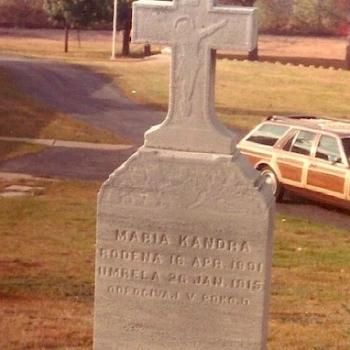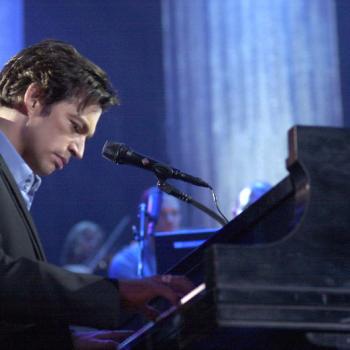Last week, I came across the remarkable story of a doctor who makes house calls to people who don’t have houses.
His name is Dr. Jim Withers, of Pittsburgh. Most nights, you won’t find him in the ER or in the operating room. You’ll find him on the streets, a stethoscope around his neck, hunting the back alleys of downtown Pittsburgh. His waiting room is McDonald’s, or a gutter, or a heating grate. His patients are the unemployed, the addicted, the elderly, the outcast. They include people suffering from depression and post-traumatic stress; some former prisoners and mental patients. They are people who can’t afford to see a doctor. Many are just lost, needing to be found.
Dr. Withers practices in a growing field called Street Medicine, through a group called Operation Safety Net, funded in part by the Sisters of Mercy in Pittsburgh. The work is hard and taxing. But person by person, case by case, Dr. Withers gives the hopeless a reason for hope. He cares for the people no one else cares about
Dr. Withers himself admits this is more than a job. It’s a calling. It is, in fact, a mission. One of the most prominent items in his simple office is a framed picture of Mother Teresa.
Mother Teresa famously said that we need to see Christ in the distressing disguise of the poor. I think perhaps Dr. Withers does, too.
But I’d also suggest something else: I think the poor of Pittsburgh see in Dr. Withers the unexpected disguise of Christ.
Here is compassion. Mercy. Tenderness. Hope. Here is God using an ordinary man to do extraordinary good.
Behold, God at work in the world.
That, in many ways, is what John the Baptist was saying about another man, in another time, when he told anyone who would listen: “Behold the Lamb of God.”
John the Baptist spoke those words in an unlikely place, about an unlikely figure—but he pointed the way to a wondrous mystery:
God isn’t always where we expect.
He comes to us in a manger. He comes to us, here and now, in a piece of bread. He comes to us through one another.
He comes to us in a stranger with a stethoscope on the streets of Pittsburgh.
We’ve just completed the Christmas season, celebrating the Nativity and reliving, once again, the beauty of this miracle, God becoming man, an event recounted with great detail and eloquence in the gospels of Matthew and Luke.
But in John’s gospel, which we just heard, there is no nativity story, no background about Jesus or his ancestry. Instead, there is this: “Behold the Lamb of God.” This is St. John’s Annunciation. Here, God’s entrance into human history isn’t heralded by angel. It is proclaimed, instead, by a prophet on the banks of a river. One solitary man sees another, and cannot help but bear witness – to “testify” – and cry out for the world to look and to believe:
“Behold, the Lamb of God.”
It’s a bold challenge.
Do we see what John the Baptist sees?
And do any of us offer that kind of testimony?
How many of us act as heralds for Christ — not so much with the words we speak, but with the lives that we live?
We need to remember: belief is more than the creed we profess, and faith is much more than the prayers we recite every Sunday at Mass.
It is a testimony, lived every day.
It is the testimony of missionaries, who offer their lives to a broken and grieving place like Haiti and Syria and Ghana.
It is the testimony of the unnamed saints we encounter every day, in offices or at bus stops, on street corners and supermarkets.
It is the testimony of doctors treating patients in alleyways and on muddy streets in places as varied as Pittsburgh or Palayur or Port Au Prince, inspired by the love and compassion of a small nun in India—who was herself inspired by the love and compassion of God made flesh in Galilee.
It is the testimony of all who seek somehow to bring Christ to others and heal a wounded world.
All these examples and more testify to the Christian life. They speak of hope and belief in a world too often overcome by despair and doubt.
Look up, they say. And behold.
“Behold the lamb of God.”
This beautiful fact remains: The work of John the Baptist didn’t end at the banks of the Jordan.
It goes on today.
All of us are called to proclaim God’s presence in our world, just like John the Baptist.
It is the great work of our lives.
St. John’s gospel tells us “In the beginning was The Word.”
But, in fact, The Word…was just the beginning.
I think the work of men like Dr. Jim Withers is a humbling reminder: the rest of it now is up to us.











